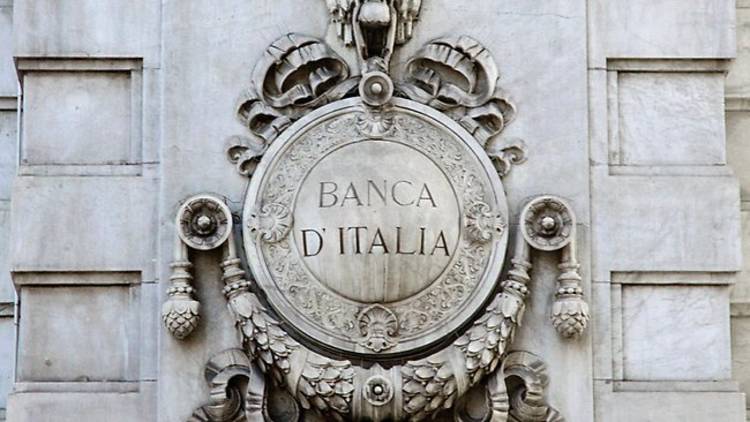


Despite the somber mood of the day, September 11th, a recent panel discussion held by the Bank of Italy [2] and moderated by the Editor of Global Finance [3], Andrea Fiano [4], left participants in a surprisingly upbeat mood. It seems an incredible act of will in the current economic environment that is hindering Italian hopes for growth and yet the conclusions from the discussion left many feeling a tad more optimistic about Italian prospects, especially if its exports can increase.
At the moment, though, Italy is feeling a lot of pain. The Italian economy has been shrinking over the past quarters and is expected to contract in 2013 as well. Italy’s economy [5] contracted for its fourth straight quarter in June, a victim of the worsening Euro zone crisis [6] at home and abroad. This is the latest in a long line of economic woes that have befallen il bel paese.
The panel discussion took place at the Casa Zerilli-Marimò [7], an appropriate venue created as a tribute to Guido Zerilli-Marimò [8], a noted Italian entrepreneur who helped with the economic rebuilding of Italy, noted Stefano Albertini [9], Director of the institution.
The panel included Salvatore Ross, a Member of the Governing Board, Deputy Director General, Banca d’Italia, Federico Mennella, Managing Director, Lincoln International [10], Fernando Napolitano, President and CEO, Italian Business and Innovation Initiative [11], and Paolo Timoni, Entrepreneur in Residence, at McKinsey Solutions at McKinsey & Company [12].
The panelists focused on three themes: Internationalization, Innovation and Finance. Rossi outlined Italy’s economic outlook under a comparative lens, with a look at its’ position compared to France and Germany. Rossi showed that certain areas of Italy, such as the Veneto and Northern Italy in general were actually doing very well when comparing their exports to those of their European counterparts while the country as a whole had slower export growth. Rossi also showed that in certain sectors, Italy was very competitive both with France and Germany. Rossi also noted that Italy did not become less competitive but that France and Germany became more competitive. The high cost of Italian labor by the unit was said to be an additional component in Italy’s lack of competitiveness.
Rossi also called into question the wisdom of continuing to have small family firms with few employees citing statistics that noted that larger firms are better able to compete. While there wasn’t total agreement on this point, there was an acknowledgement that small firms have trouble profiting from certain kinds of technology that is cheaper when you have economies of scale.
The discussion also revolved around why firms are so small whether it be tradition, bureaucracy, tax structures, lack of incentives to grow or other reasons. Mention was also made of a lack of managerial skills at these family-run firms.
If internationalizing a firm on its own is too difficult, Paolo Timoni suggested the creation of clusters of companies that could share sales, marketing and distribution channels. Timoni mentioned Luxottica as an example of a very successful Italian company that began to truly compete globally after it purchased its supply chain. Timoni also mentioned the case of Fiat [13] that now owns Chrysler [14]. He envisioned a holding company that had a number of smaller companies within it. At their current size, Italian companies can still compete in Europe but to compete in the United States, they needed to be much larger. Italy, it was said, has one-quarter of large-mid size firms that Germany does.
Fernando Napolitano, a very energetic former manager at Enel [15] noted that Italian firms are ripe to partner with US companies to compete for their fair share of the export market and to innovate. In order for that to happen however, Napolitano stressed the need for Italians to communicate in English and to change the current perceptions about Italy.
Federico Mennella also weighed in on some of the financial complexities that plague the Italian firm. Among them, corporate governance structures, the judicial system and the ease of doing business in Italy. He noted that even when an Italian company holds an IPO, they usually only list 30% or 40% of the firm and thus retain control of the company which can lead to stagnation. He also noted how much smaller the Italian stock exchange [16] is than the Germany one. Mennella reminded the audience that 800 years of history is hard to shake off in the blink of an eye.
Italy ranked 87 out of 183 countries in 2012, down four places from its 83 ranking in 2011 in the Doing Business Project [17]survey. The “project provides objective measures of business regulations and their enforcement across 183 economies and selected cities at the subnational and regional level,” according to the website. The project, launched in 2002 by the World Bank [18] and the International Finance Corporation [19], looks at domestic small and medium-size companies and measures the regulations applying to them through their life cycle.
Despite all of these obstacles, all of the participants on the panel felt that Italian Prime Minister Mario Monti [20]is on the right track with his policies and all five suggested they hoped he would be able to continue through his mandate in 2013. While no one was willing to make long-term predictions, the feeling in the room was one of possibility. No mean feat on a September 11th in New York City during the worst European debt crisis since the start of the European Union.
Source URL: http://iitaly.org/magazine/focus/facts-stories/article/competitiveness-italian-firms-hopes-upbeat-mood
Links
[1] http://iitaly.org/files/bancaditalia1348070068jpg
[2] http://www.bancaditalia.it/;internal&action=_setlanguage.action?LANGUAGE=en
[3] http://www.gfmag.com/about-us.html
[4] http://www.gfmag.com/archives/136-march-2011/11133-dear-reader.html#axzz26vxPBMU8
[5] http://en.wikipedia.org/wiki/Economy_of_Italy
[6] http://www.guardian.co.uk/business/debt-crisis
[7] http://www.casaitaliananyu.org/
[8] http://www.casaitaliananyu.org/content/guido-zerilli-marimo-0
[9] http://www.casaitaliananyu.org/content/stefano-albertini-director
[10] http://www.lincolninternational.com/
[11] http://italianbusiness.org/
[12] https://solutions.mckinsey.com/catalog/
[13] http://www.fiat.com/cgi-bin/pbrand.dll/FIAT_COM/home.jsp
[14] http://www.chrysler.com/en/2012/300s/?sid=1037056&KWNM=300+chrysler&KWID=3061010582&channel=paidsearch
[15] http://www.enel.com/en-GB/
[16] http://www.borsaitaliana.it/homepage/homepage.en.htm
[17] http://www.doingbusiness.org/
[18] http://www.worldbank.org/
[19] http://www1.ifc.org/wps/wcm/connect/corp_ext_content/ifc_external_corporate_site/home
[20] http://en.wikipedia.org/wiki/Mario_Monti